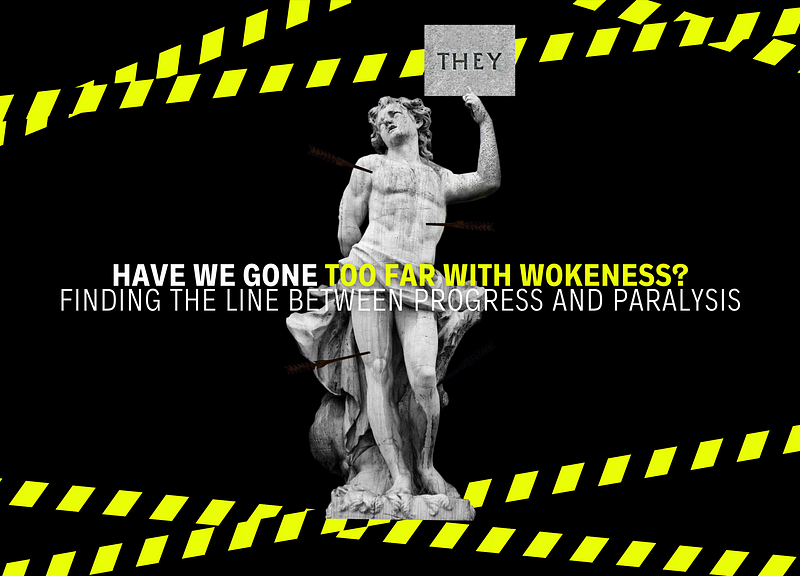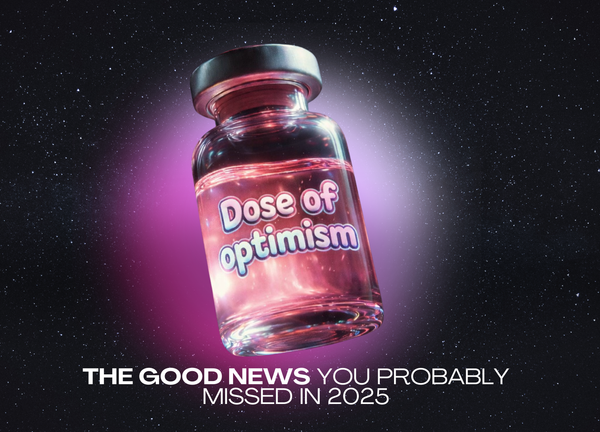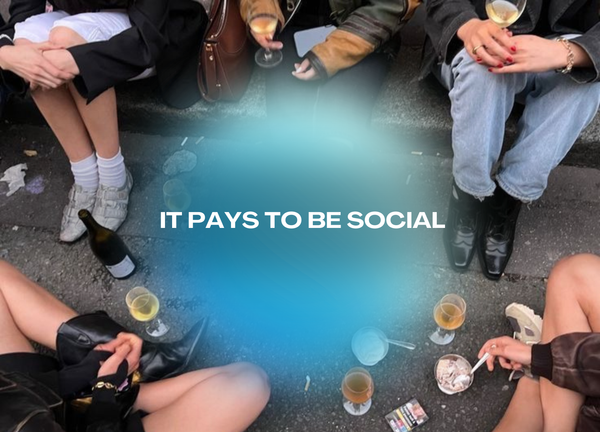Have We Gone Too Far With Wokeness? Finding the Line Between Progress and Paralysis
So, the awkward question we’re all kind of thinking but maybe too scared to ask out loud: Have we gone too far?

Remember when “woke” felt… important? Like a quiet nod of understanding, a badge you wore because you paid attention. You saw the cracks in the system, the casual injustices others scrolled past. You didn’t just hashtag about equality; you tried, imperfectly, to live it.
Fast forward to now. Drop the word “woke” into a conversation, and brace yourself. It’s just as likely to earn you an eye-roll or an online roasting as it is a nod of respect. What started as a vital call to awareness from Black American communities, urging vigilance against systemic injustice, has morphed into… well, something complicated.
It’s been co-opted by brands slapping rainbows on everything in June, weaponised by critics to shut down any progressive thought, and memed into a caricature of itself. The moral compass now feels more like a tripwire — one clumsy word, one less-than-perfect take, and you’re cancelled, blocked, or publicly shamed.
So, the awkward question we’re all kind of thinking but maybe too scared to ask out loud: Have we gone too far?
From Awareness to Anxiety: The Generational Shift
This isn’t about throwing the dictionary definition of progress out the window. It’s about asking: when did social awareness curdle into social anxiety?
Look at the modern workplace. It’s a fascinating collision of generations navigating open-plan offices and the minefield of Slack etiquette. A 2023 ResumeBuilder study chucked a grenade into the discourse, finding that a whopping 74% of managers think Gen Z is tougher to work with, citing things like oversensitivity and struggling with feedback.
Now, before we pile on Gen Z (who, let’s be real, inherited a world arguably more fragile and outspoken than ours), maybe the issue is bigger. Millennials, we kind of paved this path, didn’t we? Raised on Tumblr feminism, intersectionality 101, and a burning desire to do better. We care. Deeply. But even many of us are starting to feel the strain. That low-level hum of anxiety before hitting send on an email — did I accidentally microaggress? Is this phrasing okay? Am I about to get called out? — is exhausting.
The Pronoun Problem We’re Terrified to Discuss
Let’s get this straight: respecting someone’s pronouns is basic human decency. Full stop. Using ‘they/them’ or any other pronoun isn’t radical; it’s respectful.
But let’s also be honest about the implementation. When HR departments roll out mandatory signature policies backed by disciplinary threats, or when genuine confusion about new terminology is met with instant accusations of transphobia, we aren’t fostering understanding. We’re cultivating fear.
The data shows a disconnect. Gallup reports 1 in 5 Gen Z adults in the US identify as LGBTQ+, with non-binary identities growing. Awesome. Yet, a 2022 Pew study found only 25% of Americans feel comfortable actually using gender-neutral pronouns like ‘they/them’ for someone. That gap isn’t necessarily hate; it’s often unfamiliarity, confusion, or the fear of getting it wrong. And you can’t bridge that gap with shame. You bridge it with patient conversation and empathy.
The Great Silencing: When Awareness Shuts Down Dialogue
Here’s the brutal irony: in an era obsessed with calling things out, people are clamming up.
A Cato Institute study revealed that 62% of Americans are scared to share their political views. It’s not just online trolls; it’s happening in coffee shops, offices, even family dinners. We’re terrified of saying the wrong thing, of being misinterpreted, of facing the digital pitchforks.
So, we choose silence. Awkward conversations are avoided. Questions go unasked. The messy process of learning, unlearning, and figuring things out together grinds to a halt because nobody wants to risk learning out loud anymore.
You see it in culture, too. Comedians like Chris Rock and Jerry Seinfeld ditching college gigs because the crowds are “too sensitive”? When the people whose job it is to poke fun at our societal quirks are backing away, you know something’s off-balance.
Rewriting History, One ‘Offensive’ Word at a Time
Remember the uproar in 2023 when Roald Dahl’s books got edited? Words like “fat,” “ugly,” and “crazy” were scrubbed by sensitivity readers to make them more “inclusive” for modern kids. Fans screamed censorship; publishers called it progress.
Regardless of where you landed on that specific debate, the trend is undeniable: we’re increasingly trying to retroactively apply today’s standards to yesterday’s creations. But are we genuinely protecting vulnerable readers, or are we just trying to sanitize the past, pretending uncomfortable realities and historical contexts never existed?
Okay, So What’s Really Going On? The Moral Pendulum Swing
Sociologists have a term for this: the moral pendulum. Societies identify a problem (like systemic injustice), swing hard to correct it (hello, peak wokeness), often overshoot the mark, and then, eventually, find a more stable equilibrium.
Right now? We’re deep in the overcorrection phase.
We’ve blurred the line between holding people accountable for genuine harm and putting them through public crucifixions for clumsy phrasing or opinions that fall slightly outside the ever-narrowing Overton window. Intent often gets ignored; ignorance is treated the same as malice. Growth is sidelined in favour of public shaming. It feels less like justice and more like… performance art.
Finding the Balance: Woke Enough to Care, Calm Enough to Talk
Wokeness, in its original, vital sense, was a necessary jolt. But movements, like people, need to evolve. The goal was never static perfection; it was progress. And progress requires dialogue, even (especially) when it’s uncomfortable.
We need less cancellation, more conversation. Less performative outrage, more genuine empathy. Less fear, more curiosity.
Being “woke” should mean you care enough to listen and learn, not that you’re perpetually scanning for infractions. It should foster inclusion, not create new divisions based on who’s mastered the latest jargon. It should invite people in, not scare them into silence.
The Takeaway for Us Trying to Navigate This Mess
For Millennials (and anyone else feeling the whiplash), we were raised on the idea that we could fix things, that our voices mattered. Maybe they still do. But we can’t let the fear of getting it wrong paralyse us into doing nothing at all.
We don’t need to ditch the core principles — fighting for equality, challenging injustice, being aware. But we desperately need to reclaim nuance. We need to make space for disagreement without immediate demonisation. We need to accept that progress is often messy, awkward, and definitely not linear.
Because if we can’t find a way to talk, learn, and stumble forward together, the only thing we’ll have truly achieved is making our silence deafeningly equal.





